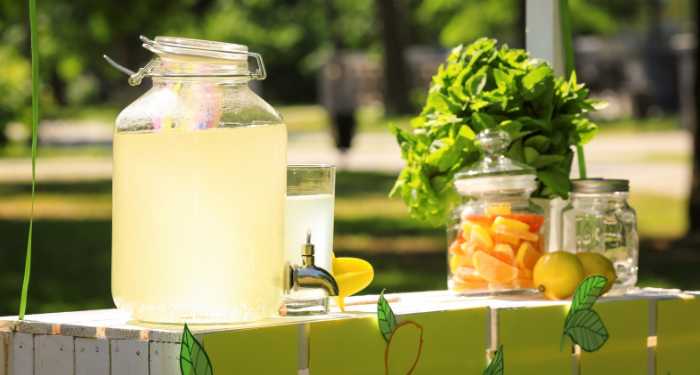When Life Gives You Lemons, Feed Your Compost Pile
Posted November 4, 2020Written By: Katie Bocskor, Marketing Manager
Summertime Lemonade Stands
When you think summertime, what adventures, activities, and memories come to mind?
I think of bike rides and lemonade stands. Summer is my favorite time of year and has been since I was a kid. As I reminisce about my childhood, I think about sitting in the driveway with my three sisters and selling lemonade to the people passing by. I bet you remember your childhood lemonade stands, as you are probably now helping your children with theirs.
Lemonade stands can teach a child so many things: from how to make lemonade, to running a small business, to sales, communication, and teamwork—so why not teach children about food waste and the benefits of composting as well?!
Benefits of Citrus Peels are Too Good to Throw Away—Compost Them!
Did you know that in the U.S. alone, about 150,000 tons of food is thrown out every day?
According to the U.S. Department of Agriculture, fruits and vegetables are the most tossed out items, followed by dairy and meat. The rotting food waste releases dangerous methane gas into the air, adversely affecting the environment. (Reference Article)
So how can you help reduce food waste going into the landfills? Compost It!
Note: If you have a vermicomposting, there are some worms that prefer not to eat citrus, but if you have a traditional compost pile you can throw the citrus peels in without worry!
Composting lemon peels and other citrus fruit is a simple way to reduce food waste. Even though citrus fruits are very acidic, there are great benefits to adding them to your compost pile, such as:
- The strong scent deters pests and animals.
- The chemical oils break down quickly, so there is no threat to friendly insects.
- Citrus peels are rich in phosphorus, nitrogen, and potassium—which helps maintain a nutritious pile. (Citrus peels fall into the ‘green’ part of your pile.)
For composting, your pile should consist of the following combinations:
- Air + Water + Carbon + Nitrogen = Compost
- 1 Part Greens + 3 Parts Brown + Water
Helpful Tips on Composting Citrus Peels
- Cut the peels into small pieces to speed up the composting process.
- If your pile acidity increases, add more grass clippings to maintain a healthy compost mixture.
- Keep your compost pile hot by actively turning your piles every few weeks. (This will keep mold from growing on your citrus peels.)
For more composting tips, download our Beginner’s Guide to Composting.
Order your GEOBIN Composter online today!
So remember, when life gives you lemons, make some lemonade — then feed your compost.

